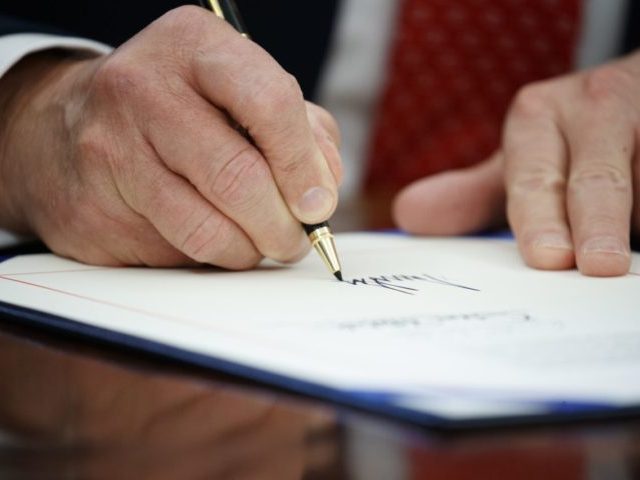President Donald Trump signed a new executive order restricting travel from six Middle-Eastern countries on Monday, as top officials defended the legality of the new ban.
“Like every nation, the United States has a right to control who enters our country, and to keep out those who would do us harm,” said Attorney General Jeff Sessions, pointing out that three of the countries were state sponsors of terrorism and the other three were safe havens from terrorism.
Sessions described Trump’s executive order as constitutional, citing the need to protect American citizens from the threat of terrorism.
“The executive is empowered under the Constitution and by Congress to make national security judgments and to enforce our immigration policies in order to safeguard the American public,” he said during the press conference.
Department of Homeland Security Secretary John Kelly explained that the new ban on travel and immigration from the six countries in the Middle East was a necessary step for homeland security.
“As threats to our security continue to evolve and change, common sense dictates that we continually reevaluate and reassess the systems that we rely upon to protect our country,” Kelly said.
He promised a “rigorous review” of immigration vetting programs, in response to radical Islamic terrorist attacks in the United States.
“The fact remains that we are not immune to terrorist threats and that our enemies often use our own freedoms and generosity against us,” Kelly said.
He vowed that all the representatives of law enforcement officials would do their duty and enforce the executive order. Unlike the first executive order, the White House painstakingly briefed congress and the media about the new executive order before it was signed.
“There should be no surprises whether it’s in the media or on Capitol Hill,” Kelly concluded.

COMMENTS
Please let us know if you're having issues with commenting.